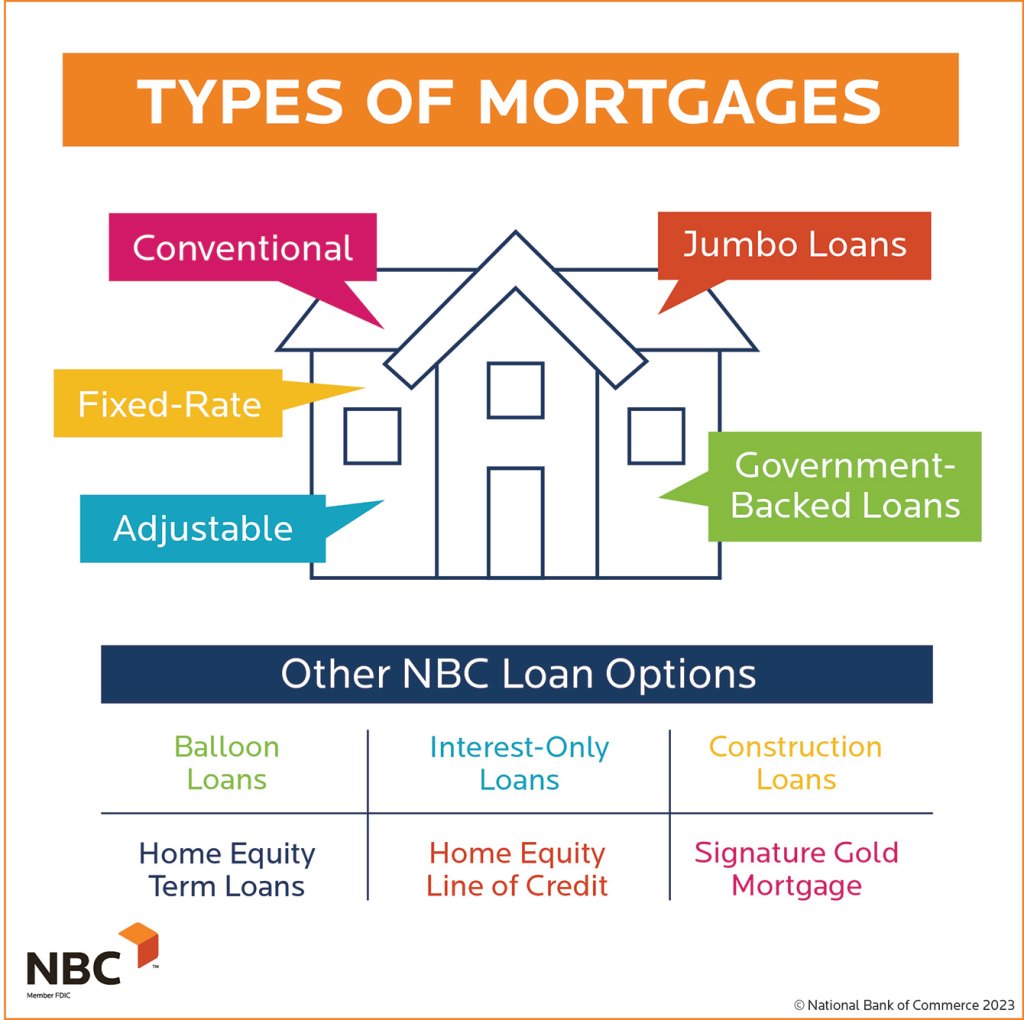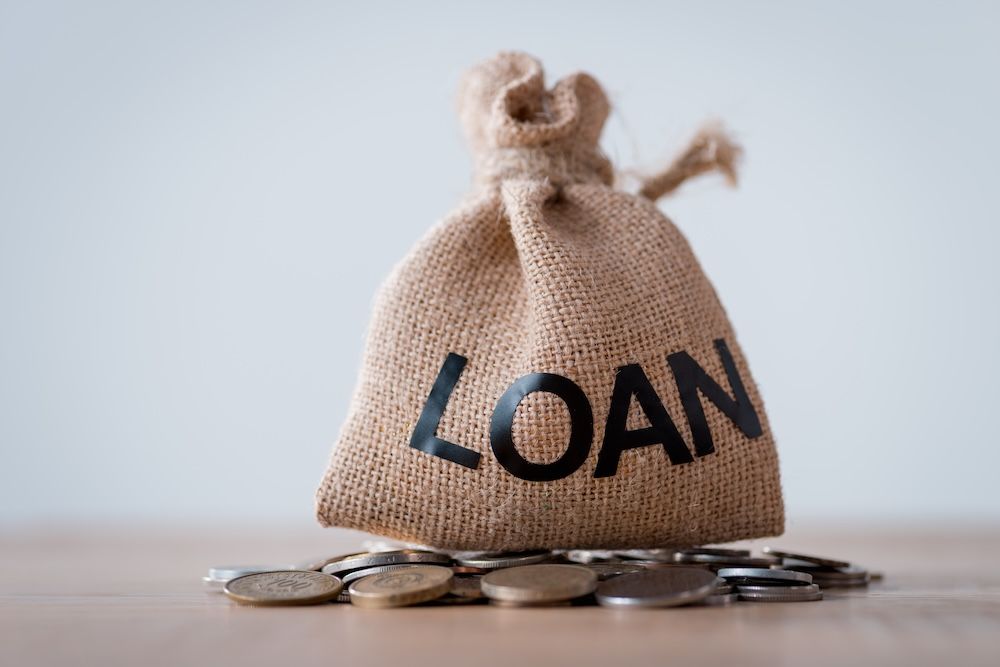A Comprehensive Overview to Home Loans: Services and Options Explained
Charting the globe of home mortgage can be complex. Different options exist, each with special features and implications for potential house owners. Understanding the distinctions in between government-backed and traditional car loans is crucial. Additionally, the application procedure includes careful documentation and pre-approval actions that several ignore. As borrowers start on their home-buying trip, recognizing how to handle these duties properly could indicate the difference between financial security and hardship. What methods can encourage them on this path?
Recognizing Home Loans: Kinds and Terms
Understanding the numerous kinds of mortgage and their associated terminology is important for prospective homeowners, as it equips them with the expertise required to make enlightened economic choices. Home mortgage can be extensively categorized right into fixed-rate and adjustable-rate mortgages. Fixed-rate mortgages maintain a constant passion rate over the life of the financing, supplying stability in regular monthly payments. Conversely, variable-rate mortgages feature passion rates that might change after an initial fixed period, potentially bring about reduced initial payments yet raised future costs.
Added terms is necessary for clarity. Principal describes the financing amount borrowed, while passion is the expense of borrowing that amount. The regard to the financing suggests its duration, normally varying from 15 to 30 years. Understanding these basic principles allows prospective buyers to browse the complicated landscape of home funding, guaranteeing they pick the right car loan choice that aligns with their monetary circumstance and lasting goals.
Standard Loans vs. Government-Backed Loans
A significant difference in home funding exists between government-backed car loans and standard lendings, each accommodating various consumer needs and scenarios. Traditional car loans are not insured or assured by the federal government and typically require greater credit report and deposits. They are commonly appealing to consumers with stable economic histories, as they might supply affordable rate of interest prices and terms.
On the other hand, government-backed loans, such as FHA, VA, and USDA car loans, are developed to assist details groups of debtors, consisting of first-time homebuyers and experts. These finances generally include reduced deposit demands and more flexible credit report standards, making them accessible to a more comprehensive array of individuals.
Ultimately, the option in between traditional and government-backed lendings depends upon the consumer's monetary situation, long-term objectives, and qualification, making it vital to meticulously examine both alternatives before deciding.
The Duty of Rate Of Interest in Home Financing
Rate of interest play a vital duty in home funding, influencing consumers' decisions in between fixed and variable rate lendings. The option between these alternatives can significantly affect month-to-month repayments, affecting overall affordability. Comprehending how interest prices work is important for anyone steering through the home financing procedure.
Fixed vs. Variable Rates
Property buyers encounter a vital choice when picking in between dealt with and variable rates, as this option considerably impacts the cost of funding with time. Fixed-rate home loans provide security, locking in a rates of interest for the life of the loan, which can be advantageous in a climbing interest price setting. This predictability enables homeowners to budget a lot more properly. On the other hand, variable-rate home loans, or variable-rate mortgages (ARMs), commonly begin with lower initial rates that can vary based on market conditions. While this might lead to lower preliminary settlements, debtors deal with the risk of increased rates in the future. Inevitably, the option between variable and fixed prices depends on private economic scenarios, danger resistance, and assumptions relating to future rates of interest patterns.
Effect on Monthly Payments
When examining home financing choices, the impact of rate of interest on month-to-month settlements is an essential variable to ponder. Rate of interest straight influence the overall cost of borrowing, impacting just how much a customer will pay every month. A reduced rates of interest outcomes in smaller monthly payments, making homeownership much more economical. Alternatively, higher rates can considerably boost regular monthly commitments, possibly straining a property owner's budget plan. Additionally, the car loan term plays a vital duty; longer terms might spread settlements out however can bring about paying even more interest over time - Cash Advance. Comprehending just how rate of interest interact with lending amounts and terms is important for debtors to make educated financial decisions and select a mortgage that lines up with their long-term economic goals
Home Mortgage Brokers vs. Straight Lenders: Which Is Right for You?
When thinking about a home mortgage, possible borrowers need to recognize the unique duties and duties of home loan brokers and direct lending institutions. Each alternative offers its own benefits and disadvantages, which can considerably affect the overall cost of financing. An educated option requires mindful evaluation of these aspects to figure out the finest suitable for individual demands.
Roles and Responsibilities Defined
Steering the complexities of home financing calls for a clear understanding of the duties and duties of mortgage brokers and direct lending institutions. Cash Advance. Home loan brokers act as middlemans, attaching debtors with loan providers. They analyze a borrower's financial circumstance, curate finance choices, and read this article overview clients with the application process, usually leveraging several lender relationships to safeguard positive terms. Conversely, straight lenders, such as banks and lending institution, offer car loans straight to consumers. They take care of the entire funding procedure, from application to financing, with an emphasis on their own items. Each alternative presents unique methods for acquiring funding, making it essential for consumers to evaluate their preferences and demands when determining in between engaging a mortgage broker or dealing with a direct loan provider
Disadvantages and pros Contrast
Picking in between a mortgage broker and a straight lender can significantly affect the home funding experience, as each alternative uses distinct benefits and downsides. Home loan brokers work as intermediaries, supplying access to multiple lenders and possibly far click over here better rates, while streamlining the financing process. Nonetheless, they may bill costs and depend on commission structures that can influence their recommendations. On the other hand, direct lending institutions simplify the procedure by offering internal finances, which can cause much faster authorizations and fewer complications. On the other hand, they may have a restricted choice of items and less adaptability concerning rates. Ultimately, the choice rests on individual preferences, financial circumstances, and the desired level of support throughout the home mortgage trip.
Price Ramifications Assessed
While examining the expense implications of mortgage brokers versus direct loan providers, potential homeowners have to think about various factors that can substantially influence their total expenditures. Home loan brokers typically charge fees for their services, which can vary considerably, influencing the total financing cost. Nevertheless, they commonly have accessibility to a broader variety of funding items and affordable rates, possibly conserving consumers money over time. Alternatively, direct loan providers may provide a much more simple procedure with potentially reduced in advance prices, yet their finance alternatives may be restricted. It is necessary for house owners to compare rate of interest prices, charges, and terms from both brokers and lenders, guaranteeing they make an informed decision that lines up with their economic objectives and demands.
The Home Mortgage Application Process: What to Anticipate
The mortgage application process can frequently really feel intimidating for several applicants. It normally begins with collecting needed paperwork, consisting of proof of income, credit report, and individual recognition. Lenders use this details to evaluate the applicant's financial security and determine car loan eligibility.
Next off, applicants submit a formal application, which may entail completing on-line types or offering details in person. Throughout this phase, loan providers evaluate numerous variables, such as debt-to-income ratio and credit history score, to pick finance terms.
When pre-approved, the lending institution will certainly perform a thorough appraisal of the residential or commercial property to identify its value lines up with the lending amount. This phase may additionally consist of extra history checks.
After last approvals and problems are met, the car loan is processed, leading to the closing phase. Comprehending each step empowers candidates, making the trip smoother and a lot more manageable as they relocate toward homeownership.
Tips for Handling Your Mortgage Responsibly
Effectively maneuvering the home find here funding application procedure is simply the beginning of an accountable financial journey. Handling a home mortgage calls for attention to a number of vital practices. First, consumers should establish a clear budget plan that suits month-to-month mortgage repayments, real estate tax, and insurance. Regularly assessing this spending plan assists prevent overspending and warranties timely repayments.

In addition, making extra repayments when feasible can substantially minimize the funding principal and complete interest paid in time. Consumers must also keep open lines of communication with their loan provider, particularly in times of economic trouble - Cash Advance. This can result in potential services such as lending alterations or re-financing alternatives
Lastly, it is a good idea to keep an eye on credit report routinely. An excellent credit rating can provide possibilities for much better financing terms in the future. By following these tips, home owners can browse their funding duties effectively, ensuring long-lasting monetary wellness and security.
Frequently Asked Inquiries
What Are Closing Costs and Just How Are They Calculated?
Closing expenses encompass costs connected with wrapping up a home loan, including appraisal, title insurance, and lending origination costs. These costs usually vary from 2% to 5% of the finance amount, varying based on area and lender.

Can I Certify for a Home Mortgage With Bad Credit?
Yes, individuals with bad debt can get approved for a home mortgage, though options may be restricted. Lenders commonly call for higher down payments or rates of interest, and exploring government-backed car loans might enhance opportunities of approval.
What Is Home loan Insurance policy and When Is It Called for?
Mortgage insurance coverage shields loan providers versus default and is normally required when a consumer makes a down repayment of less than 20%. It guarantees that lenders recover losses if the customer fails to pay back the lending.
How Does Refinancing Job and When Should I Consider It?
Refinancing entails replacing a present home mortgage with a new one, typically to secure a reduced rates of interest or modification car loan terms. Home owners need to think about refinancing when rates of interest drop significantly or their monetary scenario improves.
What Happens if I Miss a Home Loan Payment?
If a home mortgage settlement is missed, the lending institution usually examines late costs, reports the delinquency to credit rating bureaus, and might launch foreclosure process if payments remain to be neglected, at some point threatening the homeowner's residential property.
Fixed-rate home loans preserve a regular rate of interest price over the life of the financing, giving stability in regular monthly settlements. A considerable distinction in home funding exists between government-backed car loans and conventional fundings, each catering to various debtor needs and situations. In comparison, government-backed financings, such as FHA, VA, and USDA financings, are made to help details teams of customers, including new property buyers and veterans. Rate of interest rates play an important function in home funding, influencing debtors' decisions in between fixed and variable rate loans. Fixed-rate home mortgages provide security, locking in an interest price for the life of the financing, which can be helpful in a climbing rate of interest price atmosphere.